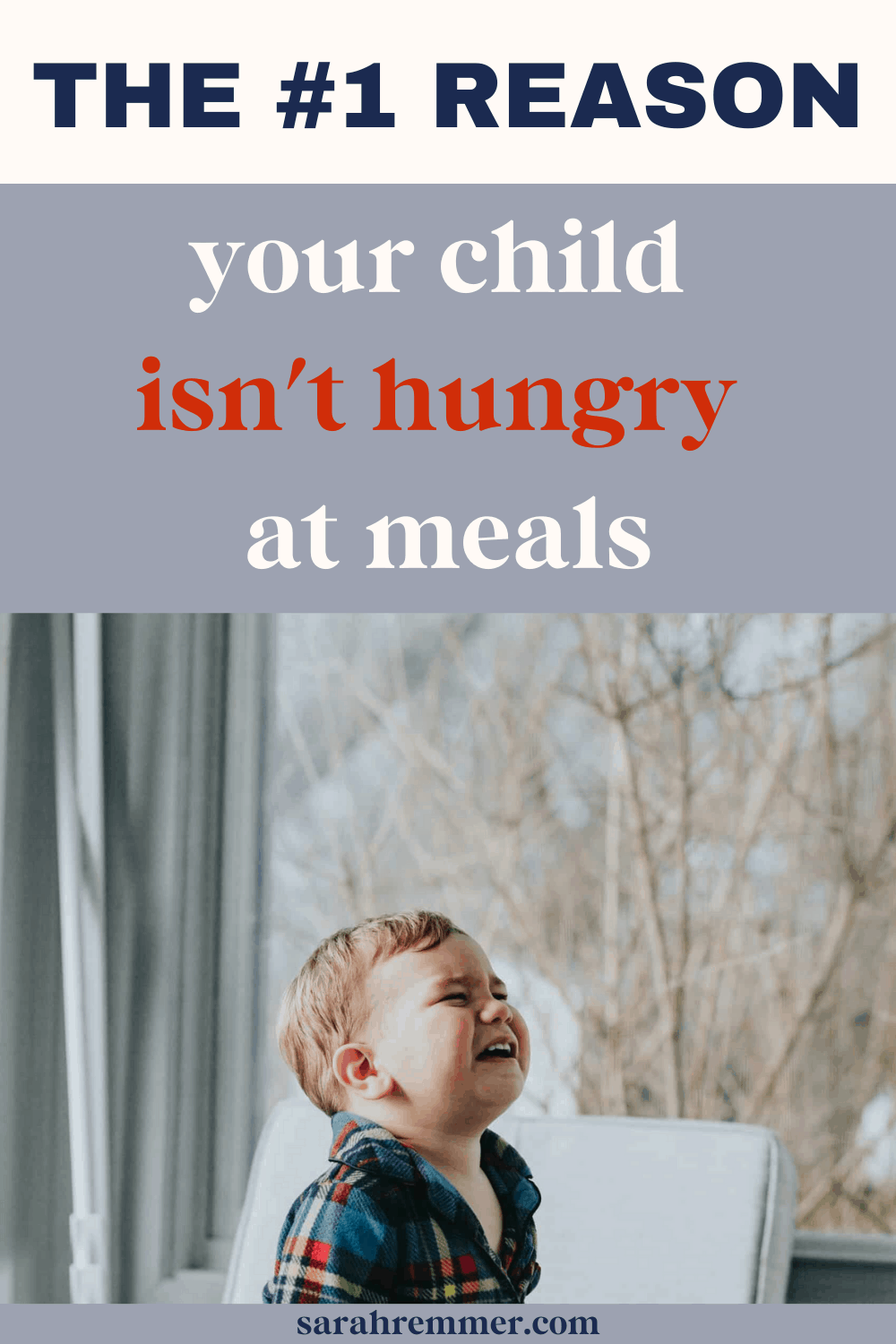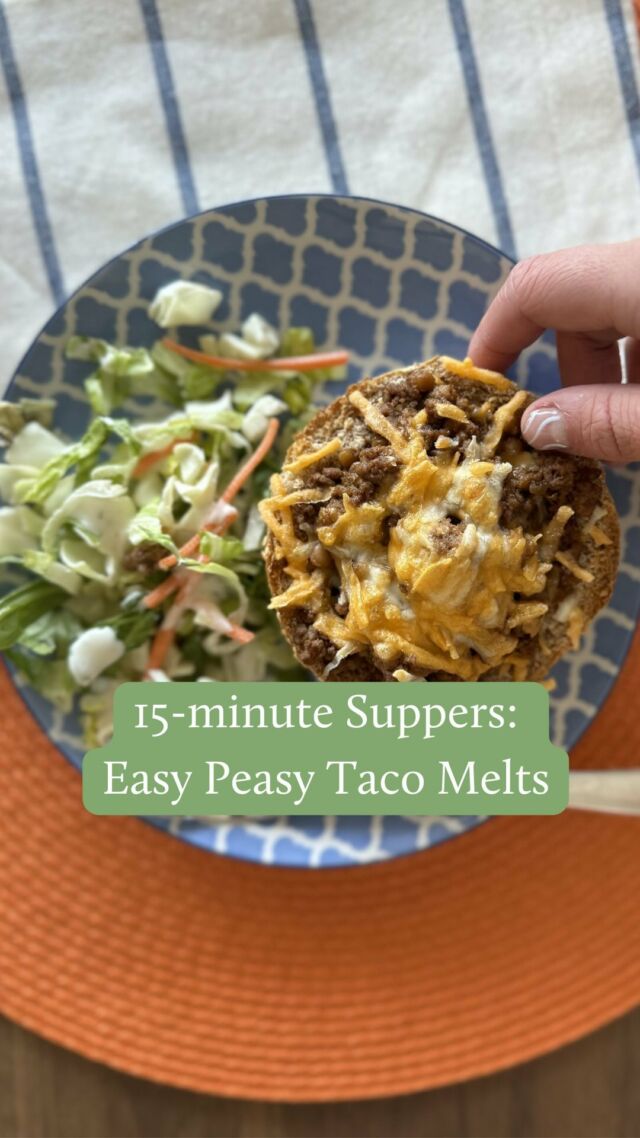There’s nothing more frustrating than preparing and serving a balanced, healthy meal after a busy day, only to have your little one push his plate away and say “not hungry” or “no thanks” or only taking a few bites before declaring that he is “done”. I can sense a collective “ugh–YES!” coming from many of you reading this.

I hear you.
Especially when you know that your child will ask for a snack soon after dinner. But that’s something that I covered in another blog post that you can read here.
There are many reasons why your child might not want to eat at mealtime, ranging from too many snacks in between meals, lack of control over their food choices, or too much pressure. But, one of the biggest and most common reasons why kids (especially toddlers) reject their meals, is this:
They drink too much milk.
Milk is often given to kids to keep them hydrated during the day instead of water–because it’s nutritious, right? Yes, it sure is. Milk contains protein, fat, calcium, Vitamin D, Magnesium, Phosphorous and about 10 other essential nutrients. It’s fantastic. But it also has a strong satiating effect. As mentioned, milk contains both fat and protein—two nutrients that make kids (especially toddlers with small tummies) feel full. This means that if too much is consumed throughout the day–especially in between meals–it can displace other nutritious foods in their diet. There’s just not enough room! What’s more, is that milk also contains lactose, a naturally occurring sugar. When tots are sipping milk all day (especially out of a sippy cup), it can wreak havoc on their teeth.
That is why I recommend that toddlers and children be offered no more than 500mL (two cups) of milk per day. And the best time to offer this milk? With or just after a meal. Offer about half a cup at mealtime (or right after), which leaves room for another half cup before bedtime if that is part of your routine. Water should be the only fluid offered between meals for hydration. And if your toddlers don’t like milk, or you’d prefer not to serve it, that’s ok, as long as they are getting those essential nutrients from other sources.
Although milk can be a nutritious part of your child’s diet, it can also take up too much precious space in your child’s stomach. You’ll be amazed at how your child’s appetite and food intake changes when you get milk drinking under control!
For more free kids nutrition tips and tricks, visit my Facebook page!





![[AD] It’s Day 6 of my 15-Minute Supper Series and today we’re putting a delicious twist on a classic BLT to make it nourishing and meal-worthy 🤤
Make sure to comment “Spud” and I’ll send you my top dietitian tips for feeding your family on busy weeknights along with a huge list of meal ideas!
This pasta salad takes no time at all to throw together and has everything you need for a nourishing meal. I always make extra bacon for things like this, but if you don’t have any cooked bacon I find cooking it in the airfryer or stovetop the quickest 🥓
I find that this salad lasts 2-3 days in the fridge without getting too soggy. You can also add in fresh lettuce to crisp it up or add the dressing when you eat it.
I ordered all of my groceries from @spuddelivers, which always saves me time and effort and gives me peace of mind knowing that I’m using high-quality, local and sustainable ingredients. I love that they come straight to my door the day after ordering 🙌🏻
Let’s make it!
Ingredients:
* 10 slices bacon cooked and diced
* 12 ounces pasta cooked and cooled
* 1 cup homemade Ranch dressing
* 1 ½ cup baby tomatoes diced
* ½ avocado diced
* feta
* ⅓ cup red onion diced
* 1 cup romaine lettuce
* fresh parsley for garnish optional
Homemade ranch dressing:
* ¾ cup mayonnaise
* ½ cup sour cream or Greek yogurt
* ½ teaspoon dried chives
* ½ teaspoon dried parsley
* ½ teaspoon dried dill weed
* ¼ teaspoon garlic powder
* ¼ teaspoon onion powder
* Salt and pepper to taste
Make it:
1. Blend all Ranch dressing ingredients together in a small blender (or whisk by hand) and set aside.
2. In a large bowl assemble the pasta, tomatoes, avocado, cheese, red onion, lettuce and bacon.
3. Pour the dressing over and toss to combine.
4. Garnish with parsley and serve.
You are going to LOVE this meal-worthy salad, I promise!
Comment SPUD to receive my top dietitian-approved tips for feeding your family during the week, a long list of ideas, and a curated shopping list with all of the ingredients for this recipe + all of the other ideas that I share in this resource!
#sponsored #spuddelivers #15minutemeals #whatsfordinner #easymealideas #dietitianapproved](https://www.sarahremmer.com/wp-content/uploads/sb-instagram-feed-images/438745920_798281295514125_2547899647147267180_nfull.jpg)



Leave a Comment